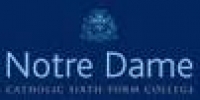






• AS COURSE Unit 1: A Study in Breadth: Russia 1881-1953: Russia in Revolution 1881-1924: Three Revolutions (1905, 1917 twice!), Two Tsars (Alexander III & Nicholas II) and a bloody Civil War (1918-21). Stalin’s Russia 1924-1953: A study of one of History’s monsters: how Stalin came to power, murdered his rivals, helped destroy Hitler, killed 20 million of his own people and made Russia a Superpower. Unit 2: Study in Depth: The Experience of Warfare in Britain 1854-1929: An examination of how the Crimean, Boer and First World Wars affected the British Army, society, the economy, medical care and the position and status of women. • A2 COURSE Unit 3: Historical Controversy: Superpower Relations 1944-90 An assessment of how rivalry between Russia and the West brought the world close to nuclear destruction. Students look at the reasons for confrontation: crises like the Berlin Blockade (1948), Hungarian Uprising (1956) and Cuban Crisis (1962) and how annihilation was avoided and the Cold War finally brought to an end in 1990. Unit 4: Historical Enquiry (Coursework): Ireland and the United Kingdom 1815-1937: A research-based study of the often strained relations between Britain and the Irish. Students research and write two extended essays (2000 words each) on the impact of organisations like the Home Rule Movement and Sinn Fein, the achievements of individuals such as Charles Stewart Parnell, Michael Collins, Eamon de Valera or the importance of events like the Great Famine 1845-52, the 1916 Easter Rising and the Anglo-Irish War (1919-1921).
| Number | Duration |
|---|---|
| 1 | year |
A level History complements most Arts subjects and combining Arts and Sciences is actually encouraged by universities. A good pass at A level is acceptable for entry to most Arts degree courses including Law.